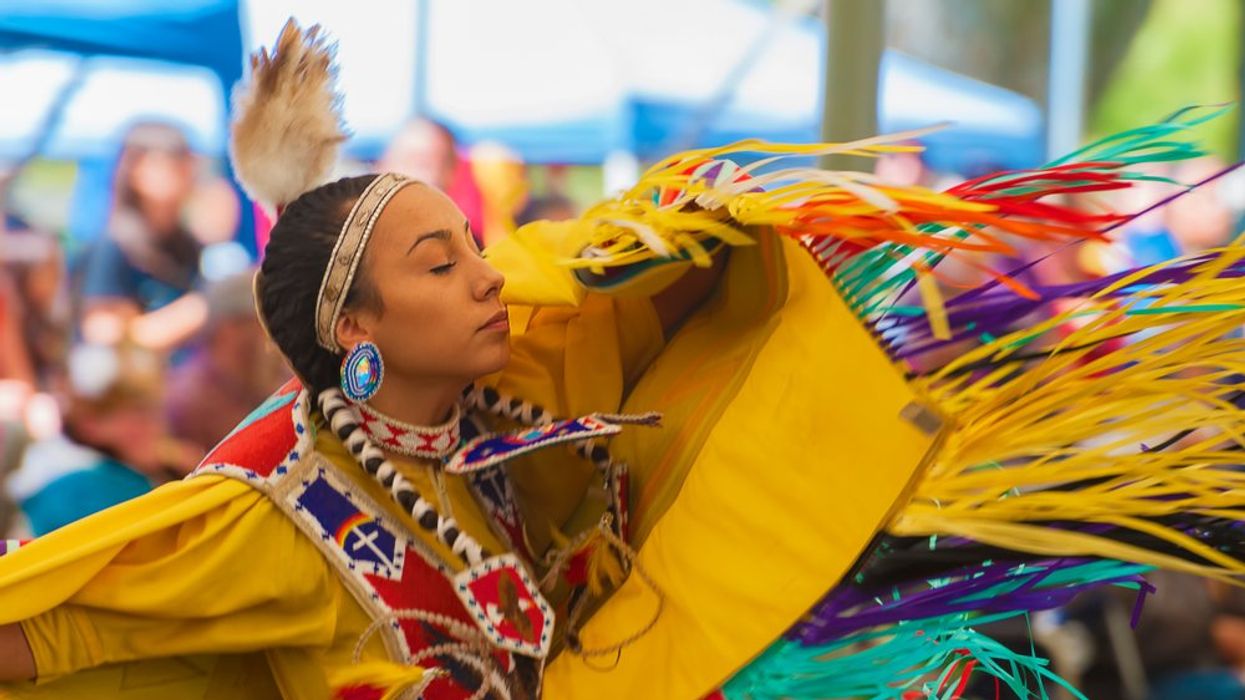Depending on who you ask, today is either known as Columbus Day, celebrating the explorer who introduced the Americas to Europe, or Indigenous People's Day, honoring the Native populations said explorer slaughtered during his conquest.
In 2022, the White House officially recognized the date as Indigenous People's Day, with President Biden releasing a statement in honor of the holiday. Yet he released a separate statement the same day celebrating Columbus Day.
As Indigenous activists were quick to point out, the country can't have it both ways. To celebrate an oppressed population on the same day we uphold their murderer, at best, shows a disconnect. At worst, it erases the the voices of Native people entirely.
While many cities and states have forgone Columbus Day and instead adopted Indigenous Peoples Day, it has yet to be approved by Congress as a national holiday. House Bill 5473 and Senate Bill 2919, which would certify the holiday, have been under consideration for over two years.
Ahead of the date in previous years, the Native American International Caucus released a statement calling on lawmakers to finally ratify the bills and put an end to Columbus Day.
"This year, we call on all members of Congress to publicly recognize Native people’s human dignity and sacred worth by voting to approve Indigenous Peoples Day as a time to celebrate our culture, affirm our human rights as sovereign tribal nations, and continue the work of repairing the damaging legacy of colonialism and racism," the statement reads.
Telling Queer Indigenous Stories Through Art

Columbus' atrocities have been well-documented, either by historians or Columbus himself, as the statement continued: "The violence and theft inflicted by Christopher Columbus and European occupation of the land, including the enslavement, genocide, dislocation and relocation of Native people, perpetuates an unjust system of capital accumulation at the expense of generations of Native lives."
With this information in mind, abolishing the holiday may seem like the obvious decision. However, the history of the holiday is complicated for Italian Americans.
In 1882, during a wave of immigration to the United States, Italians were not seen as true Caucasians. Much like Irish populations, Italian immigrants were not treated equally to white, Anglo-Saxon Europeans. In response, the fraternal organization Knights of Columbus spawned from the Catholic church and embraced Italian immigrants.
It was the Knights who erected several of the Columbus statues we see today, in an effort to recruit the underserved Italian population to Catholicism. The group also lobbied for Columbus Day to become a nationally recognized holiday, which they were granted in 1937. Now, Columbus is the third most-depicted historical figure in the United States, with 149 monuments dedicated to him throughout the country as of 2021. He is second only to Abraham Lincoln (193) and George Washington (171).
While the uplifting of Columbus didn't stem from an explicitly anti-Native sentiment, there's no denying the harm it does to Indigenous populations today. Whereas Italian-Americans are now colloquially and institutionally equal in society, Indigenous people remain one of the most underserved and abused demographics in the United States.
As author and historian Roxanne Dunbar-Ortiz told TIME Magazine: “[Italian Americans] have Michelangelo, Vivaldi, thousands of notable, incredible human beings. I do think that we should give the Italians another day and not honor [Columbus Day] because it really is the onset of European colonialism, the transatlantic slave trade and of genocide in the Americas. That’s really what Columbus represents."
Italian-Americans needed Columbus Day in 1937, but Native Americans need Indigenous Peoples Day now. To recognize the damage done by both Columbus and the United States government would assist the healing process for Native communities, and finally begin the long road towards reparations.
“While we respect the ethnic community of American Italians, we cannot accept or support the continued state-sponsored, public recognition of Christopher Columbus as a symbol of discovery, exploration, conquest," the NAIC's statement persisted. "As it continues to significantly harm all Native people both those within and outside the 570+ Native American tribal nations in the United States, who continue to live with the impact of systemic injustices and abuse began by settler colonialism."
- Ben & Jerry's Call For Mount Rushmore to Be Returned to Native Americans ›
- Professional Sports Teams Are Dropping Native Mascots, But What About High Schools? ›
- Wildfires Devastate Indigenous Communities Throughout Canada ›
- Indigenous Communities Fight to Revive LGBTQ+ Labels ›
- ESPN Anchor Under Fire For Mocking Indigenous NHL Player's Name ›
- Olympic Lacrosse Gives Indigenous Culture a Chance to Shine ›



















































